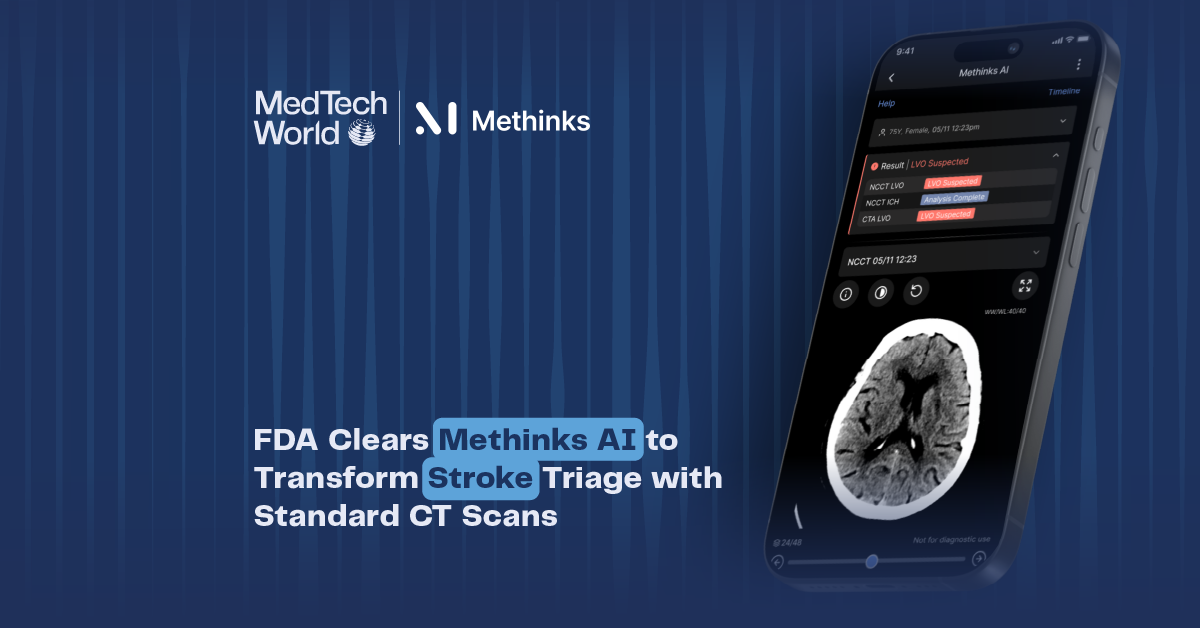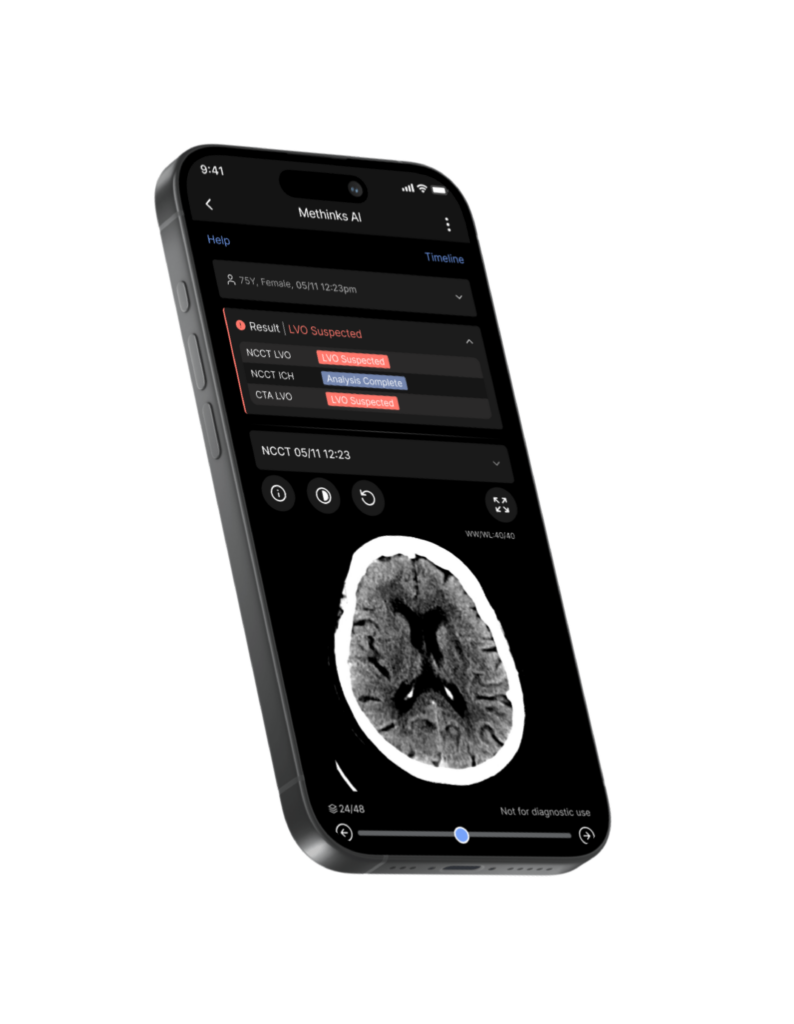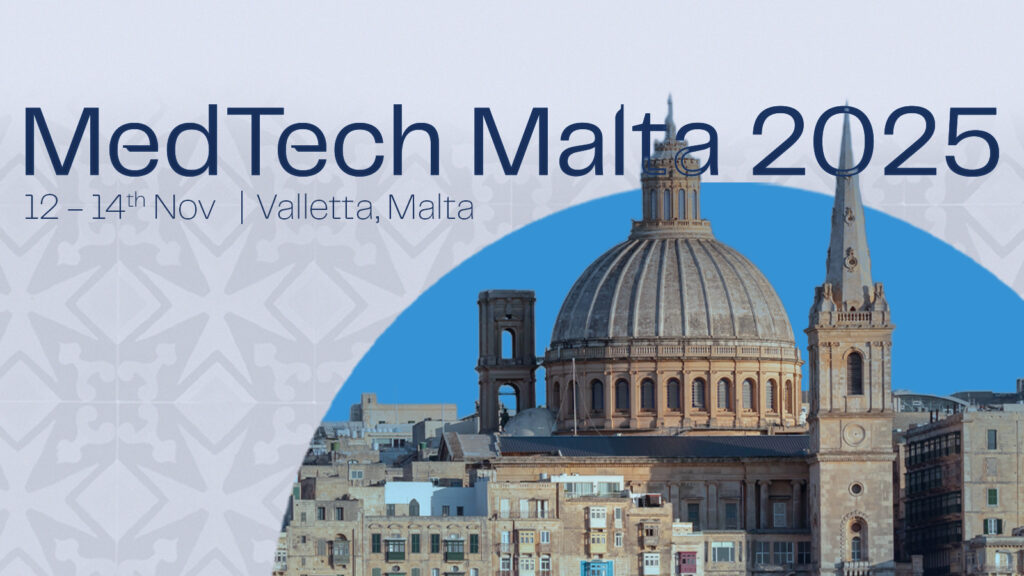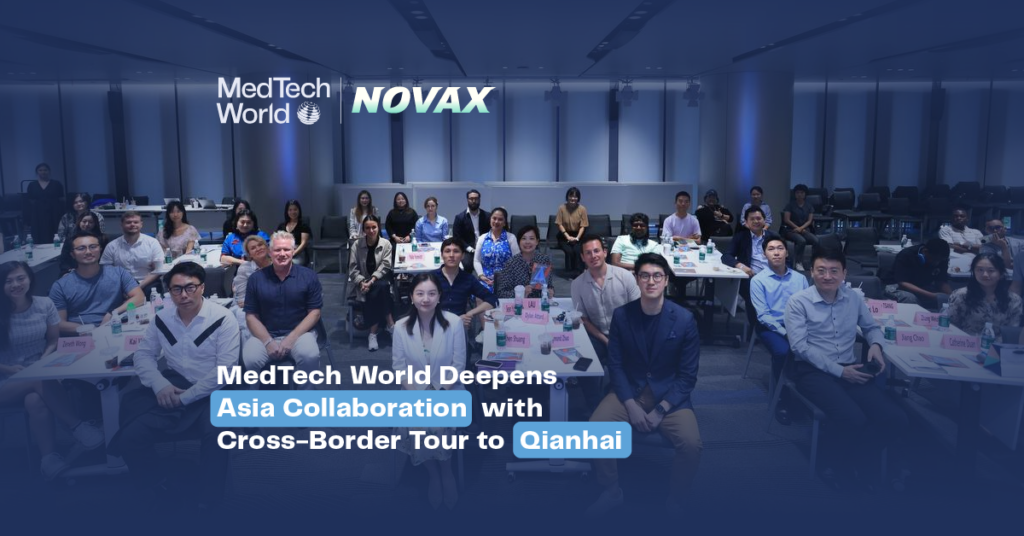
Wara Samar
7th July 2025
FDA Clears Methinks AI to Transform Stroke Triage with Standard CT Scans
For years, non-contrast CT (NCCT) has served as the most accessible and widely used imaging tool in stroke diagnosis. But when it comes to identifying the most serious blockages, large vessel occlusions (LVOs), especially in their more subtle, distal forms, standard CT has had its limits. That may be about to change.
Methinks AI, a Barcelona-based health tech company, has received FDA 510(k) clearance for its NCCT Stroke software — a first-of-its-kind tool that can detect suspected LVOs and intracranial hemorrhages (ICH) directly from routine CT scans. What makes this development noteworthy isn’t just regulatory approval, but what it means for stroke care beyond major medical centers.
The software is the only one cleared to detect more distal LVOs, such as those in the MCA-M2 segment — clots that are especially tricky to catch. According to FDA validation studies, Methinks’ AI engine reduces false negatives by nearly 50% compared to existing NCCT triage tools. That could make the difference between a patient walking out of the hospital or living with long-term disability.
A Turning Point for Stroke Triage
The timing of this clearance reflects a growing push in healthcare: bring critical decision-making tools closer to where they’re needed, regardless of geography or resources. While advanced imaging like CT angiography is ideal for stroke workups, it isn’t always available — particularly in smaller hospitals or under-resourced regions.
Methinks AI’s solution bypasses that barrier. It can be deployed in any hospital with a standard CT scanner — no contrast, no special hardware, and no additional imaging workflows. For emergency teams, that means less waiting, faster transfers, and a clearer roadmap for treatment — when every minute counts.
Also Read: Done Symple Trial Leverages Methinks AI Software to Expand Stroke Treatment Window
Built Into the Tools Hospitals Already Use
The software’s integration with Microsoft Teams adds another layer of practicality. Stroke teams can collaborate in real-time, sharing images and decisions securely on a platform already widely used in healthcare. The results flow directly into PACS and hospital information systems, reducing friction in an already time-pressured setting.
This kind of integration hints at how AI in medicine is evolving: not just as a diagnostic assistant, but as a tool that fits seamlessly into existing workflows. No additional screens, no steep learning curves — just faster, more informed decisions at the point of care.

A Wider Vision Backed by Strategic Partnerships
While the FDA clearance unlocks access in the U.S., Methinks AI’s ambitions clearly stretch further. Just two months ago, the company partnered with Medtronic to roll out its stroke triage software across Central and Eastern Europe, Türkiye, the Middle East, and parts of Africa. The partnership aligns Methinks’ AI capabilities with Medtronic’s neurovascular portfolio, extending its potential to impact stroke care on a global scale.
“Achieving FDA clearance is a defining moment for our mission and our team,” said Pau Rodríguez, CEO of Methinks AI, in a statement. “No patient should be left behind due to decision delays or limited imaging resources.”
Dr. Tudor Jovin, Chair of Neurology at Cooper University Health Care and member of the Methinks board, sees the clearance as more than just a regulatory checkbox. “It brings advanced LVO detection to hospitals everywhere… ensuring that stroke patients get the care they need as quickly as possible.”
Also Read: MedTech World Bay Area 2025 Drew 100 Startups & 150 Investors to San Jose
The First of Its Kind
Methinks AI already made history in Europe as the first company to receive a CE mark for AI-based LVO detection on non-contrast CT. This FDA clearance builds on that momentum, offering a unified solution for detecting both LVOs and hemorrhages without requiring contrast or high-end imaging suites.
The bigger implication? Stroke triage is no longer confined to top-tier hospitals. With NCCT Stroke, a community hospital can act quickly, refer efficiently, and give patients a better shot at recovery — all without reinventing its infrastructure.
At a time when stroke remains one of the leading causes of death and disability worldwide, Methinks’ latest clearance isn’t just a nod to technical capability — it’s a signal that the playing field for stroke care may finally be leveling out.
Join the Conversation at MedTech Malta 2025
Innovations like Methinks AI’s stroke triage solution highlight just how rapidly medical technology is evolving and the need for global dialogue around access, implementation, and clinical impact. Be part of these critical conversations at MedTech Malta 2025, taking place 12–14 November in Valletta. Connect with industry leaders, startups, clinicians, and investors driving the future of healthcare. Contact us at [email protected] to learn more.





